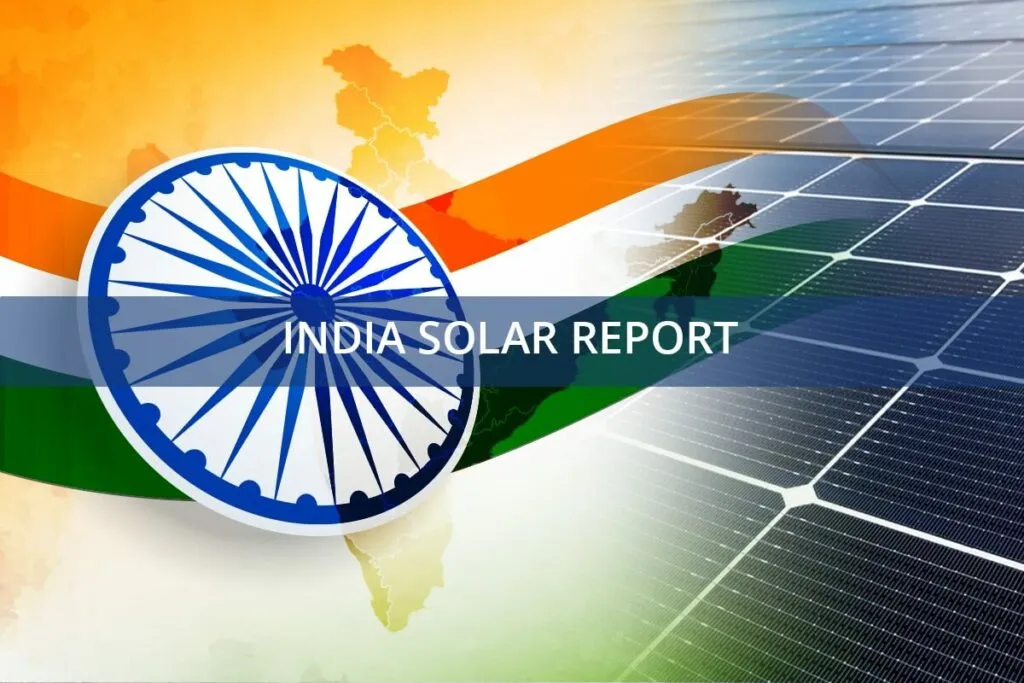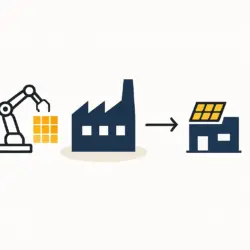Renewable Energy India Achieves Milestone: Surpasses 150 GW Installed Capacity
India has reached a remarkable milestone in its renewable energy journey. The Ministry of New and Renewable Energy (MNRE) announced that the country’s total installed capacity surpassed 150 gigawatts (GW) as of October 31, 2024. This achievement underscores India’s deep commitment to sustainable energy and positions the nation as a key player in the global renewable energy landscape.
Renewable Energy India: Detailed Breakdown of the 150 GW Capacity
According to the MNRE, the 150 GW milestone includes significant contributions from various sources. The current solar capacity of India represents the largest share at 81 GW, followed by wind energy at 44 GW. Bioenergy and small hydropower contribute another 11 GW and 5 GW, respectively. Major projects, such as the Sterling and Wilson Bags ₹504 Cr Solar Contract in Rajasthan, have been pivotal to this expansion.
India’s renewable energy capacity grew by an impressive 17.8 GW in the past year alone, a 13.5% increase. This growth is a key part of the country’s strategy to reduce its reliance on fossil fuels and transition toward a cleaner, more sustainable energy mix. The rapid expansion also aligns with the nation’s ambitious targets and its commitment to combating climate change.
Renewable Energy India Projects in Development: Current Pipeline and Future Growth
Beyond what’s already installed, India has a significant pipeline of renewable energy projects in various stages of development. The MNRE reports an additional 60 GW of projects are currently under implementation, with another 30 GW at different stages of tendering. These projects are expected to further boost India’s renewable energy capacity in the coming years, bringing the country closer to its long-term energy goals.
India has set an ambitious target of reaching 500 GW of installed renewable energy capacity by 2030. This goal is part of the nation’s broader commitment to achieving net-zero carbon emissions by 2070. This current achievement sets a strong foundation for future milestones, suggesting that India is well-positioned to meet these targets.
Renewable Energy India Policies and Initiatives: Government Support and Schemes
The Indian government has implemented several key policies and initiatives to support the growth of the renewable energy sector. In September 2023, the Cabinet approved the Viability Gap Funding (VGF) Scheme for the Development of Battery Energy Storage Systems (BESS), with a total outlay of Rs 9,400 crore. This scheme aims to provide crucial financial support for BESS projects, which are essential for integrating renewable energy into the grid and ensuring a stable supply.
The VGF scheme is expected to support the development of 4,000 MWh of BESS by 2030-31, offering financial support of up to 40% of the project cost. It is also designed to attract private sector investment in the BESS sector, fostering innovation and helping establish a competitive market for energy storage in India.
Renewable Energy India: Challenges and Future Prospects for Sustainable Growth
Despite this impressive progress, India’s renewable energy sector still faces challenges. A primary concern is integrating this new capacity into the national grid. As the share of renewables grows, the grid requires significant upgrades to handle the intermittent nature of solar and wind power. Addressing these hurdles will demand major investments in grid infrastructure, smart grid technologies, and energy storage solutions.
Another challenge is securing continued investment in renewable energy projects. While government support has been significant, attracting private investment is crucial to achieving the 500 GW target by 2030. The VGF scheme and other policy initiatives are steps in the right direction, but more effort will be needed to create a conducive environment for private sector participation.
Looking ahead, India’s renewable energy sector is poised for continued growth. The combination of strong government support, a robust project pipeline, and increasing private sector interest bodes well for the future. As India moves toward its 2030 target, the country is also expected to play a leading role in the global renewable energy transition.
Surpassing 150 GW of installed renewable energy capacity marks a significant milestone in India’s journey toward a sustainable energy future. With ambitious targets, supportive policies, and a strong project pipeline, the country is well on its way to becoming a global leader in renewable energy. While the challenges ahead are substantial, continued focus and investment can help India achieve its 500 GW goal and contribute significantly to global efforts to combat climate change.


